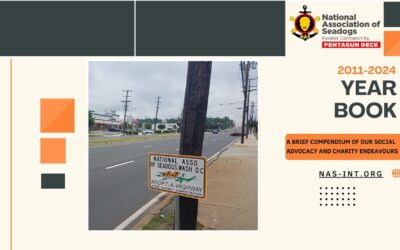"Although, I am in pain of medical treatment here in London, I am appalled and disturbed by the negative and unconstitutional role being played by the Attorney-General of the Federation, Mr. Michael Aondoakaa (SAN), with regard to the anti-corruption war embarked upon by the Economic and Financial Crimes Commission (EFCC).
"Since his assumption of office on Thursday July 26, 2007… Aondoakaa has been giving the unmistakable impression that the crusade against corruption in Nigeria is not on his agenda and that the activities of the institutions engaged in the war against corruption do not have his support."
With these words, Lagos lawyer and rights activist, Chief Gani Fawehinmi (SAN), yesterday differed with the Justice Minister over the EFCC's prosecution powers and urged President Umaru Musa Yar'Adua to sack him.
Following the EFCC's prosecution of some former governors over alleged corruption, Aondoakaa had kicked against the commission's approach to combating graft, insisting that the question of prosecution for federal offences fell under the purview of the Attorney General of the Federation.
In a 44-paragraph statement, Fawehinmi faulted the minister's insistence on section 174 of the 1999 Constitution "to exercise his powers to institute, undertake, take over, continue or discontinue any criminal proceeding in respect of federal offences under an Act of the National Assembly."
According to him, the minister's action showed a disregard for justice, public interest and the need to prevent abuse of legal processes.
Noting that section 15 (5) of the 1999 Constitution provides that "the state shall abolish all corrupt practices and abuse of power," Fawehinmi said that the Attorney-General of the Federation "has no power to turn himself or his office into a stumbling block to the war against corruption."
He cited the decision of the Court of Appeal on what an Attorney-General should not do in the case of Anyabe V. Adesiyan (1997, 5NWLR (pt.505) 403 at 432). He said Justice Oguntade ruled that "the Attorney-General, either of the Federation or a state cannot use his powers under the Constitution to subvert other provisions of the Constitution."
Lamenting that corruption had eaten deep into the country's fabric, stunting its socio-economic and political growth, Fawehinmi said graft could only be tackled effectively from a central position.
His words: "It is ironic that the Chief Law Officer of the Federation…can pretend through his actions and utterances not to be aware of the landmark judgment of the Supreme Court delivered on Friday June 7, 2002, in Attorney-General of Ondo State V. Attorney-General of the Federation (2002) 9 NWLR (pt.772) 222 where the Supreme Court interpreted the powers of the state and the powers of the Federal Government in relation to the Constitution of the Federal Republic of Nigeria, 1999 under the Exclusive Legislative List empowering the National Assembly to make laws to give effect to Section 15 (5) of the Constitution.
"In that judgment, the Supreme Court at Page 388, Paragraph E, per Uwaifo, JSC said '…only a centrally co-ordinated approach to the fight against corruption in view of the shape it has taken and the international pressure for meaningful action can have the desired result.'"
Citing examples of Attorneys General in the United States of America (Watergate scandal, 1973); Philippines (prosecution of former President Joseph Estrada for corruption, September 2007); Zambia, Indonesia and Israel, who helped to fight against corruption, Fawehinmi said Aondoakaa was impeding the crusade in Nigeria, and should be sacked.
Speaking on the issue, an Ijaw leader, Joseph Evah, endorsed Fawehinmi's position.
According to him, stopping the EFCC from prosecuting corrupt persons might lead to the demise of the Commission.
"There is nothing wrong with advising the EFCC to be humane in its handling of cases. But for the Attorney-General to publicly demand to take over such a sensitive matter should be resisted by all Nigerians."
He urged the President to remove the Minister if he was serious about his resolve to tackle corruption.
By Clifford Ndujihe
The Guardian
Monday, September 17, 2007


